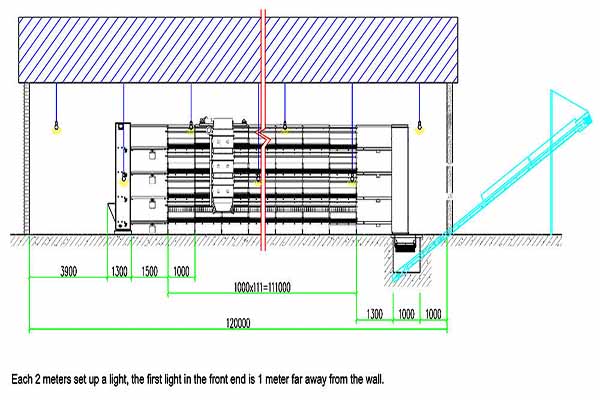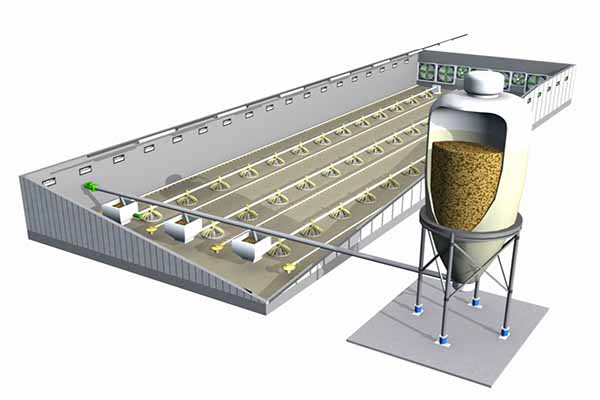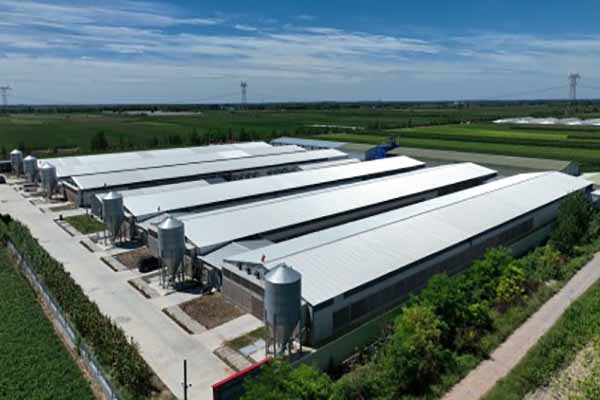Tanzania Chicken Farming Equipment: Certification Standards and Their Importance
Time : 2025-06-27
The poultry industry in Tanzania has been witnessing significant growth over the years, with chicken farming emerging as a key contributor to the country’s agricultural sector. To ensure the quality and safety of chicken products, the use of appropriate farming equipment and adherence to certification standards is paramount. This article delves into the certification standards for chicken farming equipment in Tanzania, highlighting their importance and the knowledge required for professionals in the field.
Introduction to Chicken Farming Equipment in Tanzania
Chicken farming equipment encompasses a range of tools and machines designed to improve productivity, health, and overall efficiency in chicken farming. In Tanzania, this equipment includes feeders, drinkers, incubators, lighting systems, and biosecurity equipment, among others. The quality of these equipment directly impacts the growth, health, and productivity of the chicken flock.
The Significance of Certification Standards
Certification standards are essential in ensuring that the chicken farming equipment used in Tanzania meets the required quality, safety, and hygiene standards. These standards are put in place to protect the health of the chickens, the consumers, and the environment. Below are some key certification standards relevant to Tanzania’s chicken farming industry:
1. International Organization for Standardization (ISO)
The ISO certification ensures that the equipment meets international quality standards. In Tanzania, this certification is crucial as it allows local chicken farmers to compete in the global market. ISO 9001 specifically addresses the quality management system, ensuring that the manufacturing process of chicken farming equipment is robust and meets the required standards.
2. European Norms (EN)
European Norms are another set of standards that Tanzania’s chicken farming equipment must adhere to. These norms cover various aspects of poultry equipment, including materials, design, and performance. Adhering to EN standards can be beneficial for Tanzanian farmers looking to export their products to European markets.
3. Food and Agriculture Organization (FAO) Standards
The FAO provides guidelines and standards for poultry production, including equipment. These standards focus on biosecurity, animal welfare, and environmental sustainability. Tanzania’s chicken farming equipment must meet these standards to ensure a healthy and productive flock.
4. Tanzania Bureau of Standards (TBS)
The TBS is responsible for setting and enforcing standards in Tanzania. The TBS certification for chicken farming equipment ensures that local manufacturers meet the country’s specific requirements. This certification is important for both domestic and international trade.

Key Considerations for Chicken Farming Equipment Certification

When it comes to certifying chicken farming equipment in Tanzania, several factors should be considered:
1. Material Quality
The materials used in the manufacturing of chicken farming equipment should be of high quality, durable, and resistant to corrosion. This ensures that the equipment remains functional for an extended period, reducing maintenance costs and downtime.

2. Design and Construction
The design and construction of the equipment should be user-friendly, ensuring ease of use and maintenance. It should also be adaptable to various farming environments and conditions.
3. Hygiene and Biosecurity
Chicken farming equipment must be designed to prevent cross-contamination and the spread of diseases. This includes features like easy cleaning, non-porous surfaces, and resistance to bacteria and viruses.
4. Energy Efficiency
Energy-efficient equipment is crucial for reducing operating costs and minimizing the environmental impact of chicken farming. Manufacturers should consider the energy consumption of their products during the certification process.
Conclusion
Certification standards play a vital role in ensuring the quality and safety of chicken farming equipment in Tanzania. By adhering to these standards, manufacturers and farmers can enhance productivity, reduce costs, and meet the demands of both domestic and international markets. As the poultry industry continues to grow, it is essential for professionals to stay informed about the latest certification standards and implement them effectively in their operations.
For further information on Tanzania chicken farming equipment certification standards, please visit the following resources:











